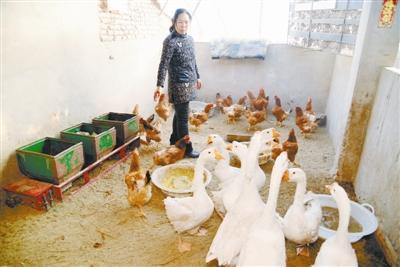The "Mango King" of Baise in Guangxi leads poor families to find the treasure book of getting rich.
"the areas 5 kilometers away from the outer edge of the Baise inner highway are all Dashi mountainous areas. such karst areas have poor natural conditions and outstanding poverty." Nai Shangquan, director of the Poverty Alleviation Office of Baise, Guangxi, said in an interview with reporters.
Baise is the place where the older generation of Chinese leader Deng Xiaoping launched the "Baise uprising". It is also a typical underdeveloped area in China, which integrates "the old, the young, the border and the poor".
According to the official plan of Guangxi, 1 million poor people in Guangxi will be relocated during the 13th five-year Plan period, of which nearly 1/4 will be relocated in Baise City.
"there is no way to live in the Dashi Mountain area." 66-year-old Mo Wenzhen said that he was born in Gulongtun, Shangxing Village, Napo Town, Tianyang County, Baise City, which is a typical karst mountain area with less than 0.4 mu of arable land per capita. Before 1987, the annual per capita income of Gu Longtun was less than 100 yuan, and the poor environment of lack of water and soil made the local people fall into poverty.
"at that time, everyone lived in shabby thatched huts, and the village had almost no infrastructure, no electricity or running water, and the village road was a muddy road, so it was difficult to travel on rainy days," he recalled. "
In 1987, 36-year-old Mo Wenzhen led 16 families to move out of the mountain, settled in Nongjiaotun, Shangxing Village, and leased 450 mu of barren slopes to grow sugarcane, cassava and other crops. Using this as a "model", the local government set up 13 resettlement sites and mobilized 1348 villagers to move out of Dashi Mountain area one after another.
After the people living in Dashi mountain area move out, they are faced with the problems of the follow-up industrial land and the construction of supporting facilities for production, life and education. The Guangxi authorities have allocated 1.55 million yuan in land expropriation fees to help poor immigrants rent 3200 mu of land in Shangxing Village and have long-term use rights, and provide support funds for the construction of Tongtun roads, installation of tap water, installation of power lines, preparation of schools and other infrastructure.
Focusing on the characteristics of its own resources, Baise officials regard the mango industry as one of the local pillar industries to shake off poverty and become rich, and through a variety of ways, establish a cooperative relationship with scientific research and teaching institutions, and invite experts to the fields to teach farmers to grow mangoes.
"I believe that the mango industry will lift us out of poverty and become rich." Mo Wenzhen said he spent four years learning mango planting techniques from an agricultural expert and became a mango expert himself through repeated planting experiments. In recent years, Mo Wenzhen has offered free training courses for local farmers to explain the knowledge of mango cultivation and has become a well-known "mango king".
At present, the comprehensive (core) demonstration area of Chengbi Lake mango industry in Youjiang District, Baise City, with a total planning area of 52000 mu, is under construction. The park will provide free training on mango planting for nearly 27000 poor households in Youjiang District. Mangoes planted by poor households can be purchased or sold through enterprises, cooperatives, and economic capable people in the park to solve their worries.
"Today, the annual per capita income of Shangxingtun villagers can reach 8500 yuan, which was unthinkable in the past." Mo Wenzhen said that in the future, he hopes to learn online knowledge and lead villagers to put mangoes on online sales platforms to sell mangoes to a larger market.
Related
- A course of planting techniques and methods on how to grow carrots
- How to plant the latest tulips?
- Is it better to pick tea in the morning or in the afternoon? When is the best time for tea to be picked? what is the third or fifth tea?
- Launch Yuanxiao Happy combination Haocha + Tea Yuan healthy Taste
- Penghu Tourism "Fireworks 20 Parade with You"
- 2022 West Lake Happiness holds "Digital Revitalization Voucher" and draws iphone13 and laptop.
- Banqiao Fuzhou social houses are designed to change start-up combined with police elimination to create a safe and livable environment
- The convenient measure of "mechanical weeding" in Xinbei has been abused and the Agriculture Bureau has imposed heavy penalties on the illegal land consolidation.
- Changgeng University Joins Hands with Four Memory Factories to Rescue Memory Talent Shortage
- The list of Taiwan's top 100 MVP managers is listed by the Director-General of the Farmers' Association of Sanxia District.



